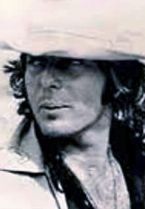 Shadow Morton, a legendary producer known in part for his work with the psychedelic band Vanilla Fudge, has died at age 72.
Shadow Morton, a legendary producer known in part for his work with the psychedelic band Vanilla Fudge, has died at age 72.
Morton long was rumored to be the uncredited producer of the psychedelic touchstone “In-A-Gadda-Da-Vida” for Iron Butterfly, although he played down that connection.
The Brooklyn-born producer of New York-area acts is best known for creating “Remember (Walking in the Sand)” and “Leader of the Pack” for the Shangri-Las.
He also produced young Janis Ian’s originally controversial breakthrough song, “Society’s Child.”
Morton met the members of Vanilla Fudge in 1966 when they were named the Pigeons.
The producer said he was inspired to turn the bar band into slow-speed cover specialists when he heard organist Mark Stein playing the 45 rpm record of the Supremes’ “You Keep Me Hangin’ On” at 33 …“ in order to learn it.
“That’s the group,” Morton remembered saying. Renamed the Vanilla Fudge, the group’s signature move was to slow down, lengthen and freak out the top 40 hits of the day.
 An edited-down version of the Fudge’s thick-as-syrup recording of that Supremes’ song became a smash in the summer of 1967, just as top 40 radio warmed to psychedelic pop and FM radio emerged.
An edited-down version of the Fudge’s thick-as-syrup recording of that Supremes’ song became a smash in the summer of 1967, just as top 40 radio warmed to psychedelic pop and FM radio emerged.
“You Keep Me Hangin’ On,” with its funeral church organ and bursts of hard rock, played like a novelty song at the time. Hippie nation embraced the odd mix of the familiar — the Supremes’ instant classic — with the heady-spooky vibes of the day. Promoters called it symphonic psychedelic rock. Critics called it crap.
The debut album by Vanilla Fudge was all covers, in fact, an odd move in the era of album rock artists.
Six of the seven songs already were famous, including the Beatles’ “Ticket to Ride” and “Eleanor Rigby,” Curtis Mayfield’s “People Get Ready” and Sonny and Cher’s “Bang Bang.”
“They take other peoples’ material and rewrite it, redo it, reshape it,” Morton said of the band years later. “They make symphonies out of it. That’s their forte. That’s what they do.”
Morton arm-wrestled the band into expanding the concept on “The Beat Goes On,” a double concept album based on another Sonny and Cher song. The album remains an infamous dud, the “Ishtar” of the psychedelic era.
 “Any failing that comes the way of the Vanilla Fudge pertaining to ‘The Beat Goes On,’ I have to take the bow for that,” Morton told vanillafudge.com. “That was totally my concept. My idea. … I was wrong.”
“Any failing that comes the way of the Vanilla Fudge pertaining to ‘The Beat Goes On,’ I have to take the bow for that,” Morton told vanillafudge.com. “That was totally my concept. My idea. … I was wrong.”
The band agreed, blasting the sonic collage in liner notes for a CD reissue. Bassist Tim Bogert said, ” ‘The Beat Goes On’ was the album that killed the band.” (Morton and the group would make one more album together.)
Morton’s first musical success remains universally revered, however. He wrote “Remember (Walking in the Sand)” in 1964, on the way to the first recording session for the Shangri-Las. Strange and bittersweet, the chorus encircled by the sound of seagulls, it compared favorably with the atmospheric works of producer Phil Spector.
Morton wrote “Leader of the Pack” with his friend Ellie Greenwich and her husband Jeff Berry. The teenage death song became a No. 1 smash, in part because of a motorcycle brought into the studio to rev up some sound effects.
For 14-year-old Janis Ian, he produced “Society’s Child,” a tale of doomed interracial romance. When news came of Morton’s death, Ian called it a sad day and posted vintage photos of the two of them on her social media outlets.
The story goes that Ian auditioned for Morton, who ignored her by reading a newspaper. “I realized he wasn’t listening. So apparently — although I don’t remember it — I took out a cigarette lighter and lit his newspaper, and left,” Ian recalled in an interview.
Thus convinced, Morton produced the song and shopped it to more than 20 record companies before finally landing a deal with MGM/Verve Forecast. “Society’s Child” was widely banned, but soon made Ian a star.
For his friend Ahmet Ertegun, Morton apparently agreed to oversee production for the unknown San Diego band Iron Butterfly, but his actual role in the recording of “In-A-Gadda-Da-Vida” was minimal at best, he said numerous times.
George Morton was called Shadow for his habit of sneaking in and out of recording sessions.
After the 1960s, he found a second career as a designer of golf clubs but continued to write (mostly unheard) songs.
He died Feb. 14 in Laguna Beach, Calif. The cause of death was cancer, press reports said.
I think “The Beat Goes On” is super cool. It has inspired me any way. As with all of the Fudge’s music.